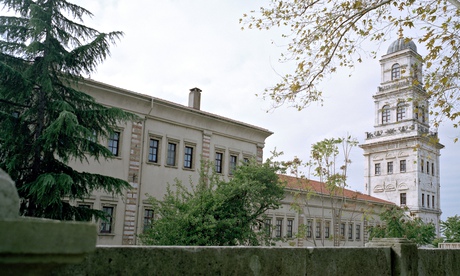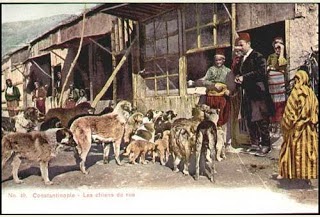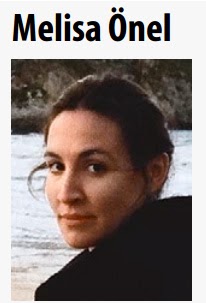Chercheur associée, UMR 8032, Etudes turques et ottomanes, CNRS.
Adresse : 4, rue Vicq d’Azir 75010 Paris
Email : pinguetca@wanadoo.fr
Docteur ès lettres, Paris 7 (Jussieu), département des « Sciences des textes et documents », thèse sur Jean Genet et les Palestiniens, 1996. Enseigne dans différentes universités turques (Istanbul) : maître de conférences dans le département anglophone d’histoire, à l’université Yeditepe (1998-2004) ; poste à mi-temps dans le département francophone de civilisation européenne, à l’université Koç (2000-2001) et lectrice à l’université Yıldız, département français de traduction et d’interprétation (1999-2001). Travaux et enseignement portent alors essentiellement sur les littératures comparées, les traditions orales et l’histoire des religions. Premier essai, La Folle sagesse, consacré aux folies divines en terre d’Orient et à la littérature populaire. Second essai sur les chiens des rues d’Istanbul, récit d’une cohabitation urbaine homme/animal du 19e siècle à nos jours. Des travaux portent ensuite sur le statut littéraire du témoignage et les différentes formes de dénis historiques (publiés dans Chimères, revue créée par Gilles Deleuze). Dix années de recherches et d’enquêtes de terrain consacrées à la poésie des aşık alévis, publiées sous forme d’articles et d’un livre à paraître en juin 2009. Travaille actuellement plus spécifiquement sur l’histoire des îles des Princes, notamment sur les minoritaires rum, arméniens et juifs. Commande des éditions Koutoubia pour un livre sur Abdullah Frères, photographes arméniens à la fin de l’Empire ottoman.
![]() Terrains et aires géographiques
Terrains et aires géographiques
Turquie : plateaux du Taurus (Tekke Köyü et les environs), Istanbul, îles des Princes.
Thèmes et projets de recherche
Littératures populaires et mystiques turques : répertoire (chants sacrés et profanes), performances et pratiques religieuses (cérémonies, pèlerinages) et croyances (syncrétisme des alévis et des bektachis).
Littérature et politique : étudier et interpréter l’importance croissante du témoignage en littérature et l’écriture de l’histoire, les différentes formes de dénis que ces témoignages ont suscitées et leur violence critique.
Ecrire et penser l’animal : évolution des discours et des représentations de l’animal. Recherches pluridisciplinaires sur les rapports homme/animal.
Histoire d’un archipel (les îles des Princes) de l’Empire byzantin à nos jours. Les insulaires d’alors et d’aujourd’hui, notamment les minoritaires.
Bibliographie
Livres
Les îles d’Istanbul, récit en cours.
Abdullah Frères, éditions Koutoubia, Paris, à paraître en septembre 2009. Une exposition, organisée par Erick Bonnier, sera également consacrée aux photographes arméniens à la fin de l’Empire ottoman.
La Voie est une, mille les chemins – Rencontre avec les bardes anatoliens, éditions Koutoubia, Paris, à paraître en juin 2009.
Les Chiens d’Istanbul, éditions Bleu Autour, Saint-Pourçain-sur-Sioule, mai 2008. Traduit en turc, à paraître en 2009 aux éditions Yapı Kredi, Istanbul.
La Folle sagesse, éditions du Cerf, collection « patrimoine », Paris, novembre 2005. Prix à la création littéraire de l’Académie française, en novembre 2006.
Ouvrages collectifs
Istanbul, sous la direction de Nicolas Monceau, éditions Laffont, collection « Bouquins », à paraître en 2009. Article intitulé, « Les îles. Neuf points sur la carte », et 12 entrées de dictionnaire (Alevi – Balat – Chats – Chiens des rues – Croisades – Derviches tourneurs – Iles des Princes – Janissaires – Pont de Galata – Saint Georges – Tekke – Trotsky).
La Turquie spirituelle, sous la direction d’Alberto Fabio Ambrosio, éditions du Cerf, à paraître en 2009. Article sur la spiritualité communautaire des alévis.
Animals and People in the Ottoman Empire, sous la direction de Suraiya Faroqhi, à paraître aux éditions Eren, « Istanbul’s street dogs at the end of the Ottoman Empire : between will of extermination and desire of protection ».
Articles
« Street Dogs of Istanbul. Account of a shared city life », Revue d’Istanbul Research Centre, à paraître, début 2009.
“Chiens errants, d’Istanbul et d’ailleurs”, Pdergisi, Istanbul, numéro consacré aux chiens dans l’art, automne 2008.
« Il était une fois, il n’est plus – Quand tradition orale rime avec renouveau poétique », Poésie des Suds et des Orients, sous la direction de Marc Kober, L’Harmattan, coll. « Itinéraires et contacts des cultures », juin 2008, p. 157-170.
« Ecritures contemporaines du bestiaire chrétien », Ecrire l’animal aujourd’hui, Presses universitaires Blaise Pascal et London Metropolitan University 2006, p. 221-234.
« Chiens dits ‘éboueurs’ : le cas d’Istanbul », revue Ethnozootechnie, sous la direction de Jean-Pierre Digard, n°78, 2006, p. 163-168.
« La littérature de la bombe : silences et dénis », revue Chimères, n°62, automne 2006, p. 89-118.
« L’exhibition de l’Autre dans la construction de l’identité européenne : le ‘zoo humain’ et ses avatars », revue Cogito, Istanbul : éditions Yapı Kredi, août 2005, p. 73-103.
« Chiens d’Istanbul : entre mythe et réalité », revue Cogito, Istanbul : éditions Yapı Kredi, août 2005, p. 122-142.
« Remarques sur la poésie de Kaygusuz Abdal », Turcica, tome 34, éditions Peeters, 2002, p. 13-38.
« Abdal Musa », traduction de l’article de F. Köprülü, introduit et annoté, Journal de l’Histoire du Soufisme, Paris : Jean Maisonneuve, vol. 3, 2000-2001, p. 325-347.
« La poésie alévie contemporaine : travail de mémoire et histoire du temps présent », Journal de l’Histoire du Soufisme, Paris : Jean Maisonneuve, vol. 3, 2000-2001, p. 299-316.
« Un Captif amoureux de Jean Genet : le rapport à l’histoire à travers le récit d’un ancien officier arabe de l’armée ottomane », Ankara : revue Littera, juin 2001, p. 177-193.
« Traduire la poésie populaire et mystique turque : difficultés et enjeux », Journal asiatique, tome 286, 1998, p. 389-408.
« Mourir en un temps bref ou chanter pour l’éternité – Jean Genet politique », Lignes, Paris : éditions Hazan, n°19, mai 1993, p. 98-110.






































